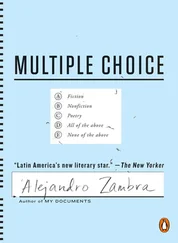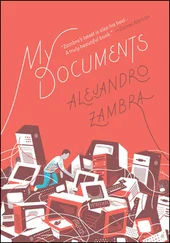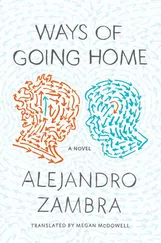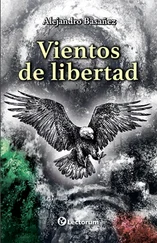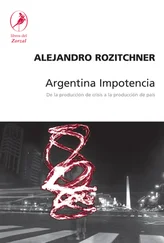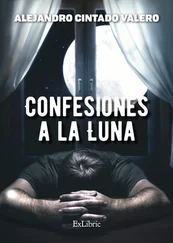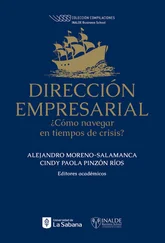Years passed, and the only
person who didn’t change was
the young woman in the book.
Yasunari Kawabata
Pain is measured and detailed.
Gonzalo Millán
In the end she dies and he remains alone, although in truth he was alone some years before her death, Emilia’s death. Let’s say that she is called or was called Emilia and that he is called, was called, and continues to be called Julio. Julio and Emilia. In the end Emilia dies and Julio does not die. The rest is literature:
The first night they slept together was an accident. They had an exam in Spanish Syntax II, a subject neither of them had mastered, but since they were young and in theory willing to do anything, they were willing, also, to study Spanish Syntax II at the home of the Vergara twins. The study group turned out to be quite a bit larger than imagined: someone put on music, saying he was accustomed to studying to music, another brought vodka, insisting that it was difficult for her to concentrate without vodka, and a third went to buy oranges, because vodka without orange juice seemed unbearable. At three in the morning they were perfectly drunk, so they decided to go to sleep. Although Julio would have preferred to spend the night with one of the Vergara sisters, he quickly resigned himself to sharing the servant’s quarters with Emilia.
Julio didn’t like that Emilia asked so many questions in class, and Emilia disliked the fact that Julio passed his classes while hardly setting foot on campus, but that night they both discovered the emotional affinities that any couple is capable of discovering with only a little effort. Needless to say, they did terribly on the exam. A week later, for their second chance at the exam, they studied again with the Vergaras and slept together again, even though this second time it was not necessary for them to share a room, since the twins’ parents were on a trip to Buenos Aires.
Shortly before getting involved with Julio, Emilia had decided that from now on she would follar , as the Spanish do, she would no longer make love with anyone, she would not screw or bone anybody, and much less would she fuck. This is a Chilean problem, Emilia said, then, to Julio, with an ease that only came to her in the darkness, and in a very low voice, of course: This is a problem for Chilean youth, we’re too young to make love, and in Chile if you don’t make love you can only fuck, but it would be disagreeable to fuck you, I’d prefer it if we shagged, si follaramos , as they do in Spain.
At that time Emilia had never been to Spain. Years later she would live in Madrid, a city where she’d shag quite a bit, though no longer with Julio, but rather, mainly, with Javier Martínez and with Ángel García Atienza and with Julián Alburquerque and even, but only once, and under some pressure, with Karolina Kopeć, her Polish friend. On this night, this second night, on the other hand, Julio was transformed into the second sexual partner of Emilia’s life, into, as mothers and psychologists say with some hypocrisy, Emilia’s second man, while Emilia in turn became Julio’s first serious relationship. Julio avoided serious relationships, hiding not from women so much as from seriousness, since he knew seriousness was as dangerous as women, or more so. Julio knew he was doomed to seriousness, and he attempted, stubbornly, to change his serious fate, to pass the time waiting stoically for that horrible and inevitable day when seriousness would arrive and settle into his life forever.
Emilia’s first boyfriend was dim, but there was authenticity in his dimness. He made many mistakes and almost always knew enough to acknowledge them and make amends, but some mistakes are impossible to make amends for, and the dim one, the first one, made one or two of those unpardonable mistakes. It’s not even worth mentioning them.
Both of them were fifteen years old when they started going out, but when Emilia turned sixteen and seventeen the dim one was still fifteen. That’s how it went: Emilia turned eighteen and nineteen and twenty-four, and he was fifteen; twenty-seven, twenty-eight, and he fifteen, still, until her thirtieth, since Emilia did not keep having birthdays after thirty, and not because she at that point decided to conceal her age, but rather because a few days after turning thirty Emilia died, and so she no longer turned older because she began to be dead.
Emilia’s second boyfriend was too white. With him she discovered mountaineering in the Andes, bicycle rides, jogging, and yogurt. It was, in particular, a time of a lot of yogurt, and this, for Emilia, turned out to be important, because she was emerging from a period of a lot of pisco, of long and complicated nights of pisco with Coca-Cola and pisco with lemon, and also of pisco straight up, dry, no ice. They groped each other a lot but never arrived at coitus, because he was very white and this made her distrustful, despite the fact that she herself was very white, almost completely white, with short hair that was very black, she did have that.
The third one was, in fact, a sick man. From the start she knew the relationship was doomed to failure, but even so they lasted a year and a half, and he was her first sexual partner, her first man, when she was eighteen, and he was twenty-two.
Between the third and the fourth there were several one-night stands, spurred, as it were, by boredom.
The fourth was Julio.
In keeping with a deep-seated family custom, Julio’s sexual initiation was negotiated, at ten thousand pesos, with Isidora, with cousin Isidora, who after that point was no longer called Isidora, nor was she Julio’s cousin. All the men in the family had been with Isidora, who was still young, with miraculous hips and a certain leaning toward romanticism, who agreed to attend to them, although she was no longer what is referred to as a whore, a whore-whore: now, and she always strove to make this clear, she worked as a lawyer’s secretary.
At the age of fifteen Julio met cousin Isidora, and he continued to meet with her during the years that followed, in the context of special gifts, when he insisted on it enough, or when his father’s brutality abated and, as a result, the period came known as the period of fatherly remorse, immediately followed by the period of fatherly guilt, whose most fortunate consequence was economic generosity. It goes without saying that Julio nearly fell in love with Isidora, that he cared for her, and that she, briefly moved by the young reader who dressed in black, treated him better than the others she was with, that she spoiled him, that she educated him, in a fashion.
Only at the age of twenty did Julio begin to approach women his age as potential lovers, with limited success but enough to decide to leave Isidora. To leave her, of course, in the same way one quits smoking or gambling at the racetrack. It wasn’t easy, but months before that second night with Emilia, Julio already considered himself safe from the vice.
That second night, then, Emilia was in competition with a unique rival, although Julio never went so far as to compare them, in part because there was no possible comparison and also due to the fact that Emilia turned out to become, officially, the only love of his life, and Isadora, barely, an old and agreeable source of pleasure and suffering. When Julio fell in love with Emilia all the pleasure and suffering previous to the pleasure and suffering that Emilia brought him turned into simple imitations of true pleasure and suffering.
The first lie Julio told Emilia was that he had read Marcel Proust. He didn’t usually lie about reading, but that second night, when they both knew they were starting something, and that that something, however long it lasted, was going to be important, that night Julio made his voice resonant and feigned intimacy, and said that, yes, he had read Proust, at the age of seventeen, one summer, in Quintero. At that time no one spent their summers in Quintero anymore, not even Julio’s parents, who had met on the beach at El Durazno, who went to Quintero, a pretty beach town now invaded by slum dwellers, where Julio, at seventeen, got his hands on his grandparents’ house and locked himself up to read In Search of Lost Time . It was a lie, of course: he had gone to Quintero that summer, and he had read a lot, but he had read Jack Kerouac, Heinrich Böll, Vladimir Nabokov, Truman Capote, and Enrique Lihn, and not Marcel Proust.
Читать дальше

